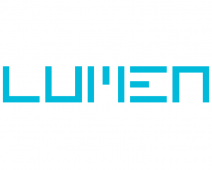Privacy Trumps Price; Programmatic Appreciated for Reduction of Media Wastage
by Sonja Kroll on 9th Jun 2016 in News


ExchangeWire Research’s weekly roundup brings you up-to-date research findings from around the world, with additional insight provided by Rebecca Muir, head of research and analysis, ExchangeWire. In this week’s edition: Consumers want more control over data handling; The benefits of programmatic; and Tablets are preferred devices of senior internet users.
Privacy more important than price
UK consumers are more interested in how brands handle their customer data than in product prices – and want more control over the data handling by the brands they engage with, reveals the Control Shift study, conducted by J Walter Thompson.
Surveying more than 1,000 consumers, the study concentrated on the UK market and found that UK consumers are strongly concerned about their online privacy: 91% would like to have more control over who accesses their personal data and how it is used, while 67% said they fear that “technology is taking over their lives”.
While consumers are eager to benefit from their relationships with brands, they are increasingly conscious that their personal data represents a value to the brands: Over half of those surveyed would like to be rewarded for sharing their personal data with brands, i.e. 59% would like to be paid for the use of their data, while 57% would like to be rewarded with discounts.
"We have reached a new cultural milestone in the debate around data and privacy. For data to trump price in the eyes consumers is huge", comments Marie Stafford, European Director, J. Walter Thompson. However, she doesn’t think that this is a bad omen for brands – but an opportunity, as "by ensuring they acknowledge consumers’ digital liberties and privacy, while harnessing advanced technology, they can deliver utility, optimisation, and engagement, as well as building deep and personal relationships."
Programmatic can reduce media wastage
The greatest benefits of investing in programmatic are the reduction of media wastage and higher trading efficiencies. That is the conclusion of a survey conducted by the IAB Europe, due for publication at the end of June. In a preview, the IAB discloses some key findings of the study.
Surveying over 900 marketers across 29 markets, the study finds only 13% of advertisers, 8% of publishers, and 7% of media agencies are not using programmatic technology at this point. For those who do invest in programmatic, reduction of media wastage (56% of advertisers; 72% of agencies) and greater cost and trading efficiencies (47% of advertisers; 48% of agencies; 68% of publishers) are the most important impacts of programmatic.
Whether they are already using programmatic technology or not, over 90% of those surveyed have an optimistic outlook on programmatic and are planning investment in the area over the next year.
"Programmatic is no longer the future, it is here", says Graham Wylie, chair of IAB Europe’s Programmatic Trading Committee. "The continued growth and increasing confidence shown in this research is a testament to the industry’s recognition of its powerful contribution to business growth. Whilst both buy- and sell-side have made major strides in adoption, some barriers still remain. By sharing detailed insight across the industry, this research aims to inspire businesses to deploy programmatic to its full potential."
Silver Surfers love tablets
With the saturation point for mobile ownership now almost reached – 97% of the UK population owns a mobile phone – the IPA takes a closer look at type of device and usage.
Seventy-eight percent of mobile phones owned in the UK are smartphones, according to the IPA Touchpoints study. A look at mobile phone ownership by age reveals that almost all 15-24 year olds now own a mobile phone (99%), of which 95% are a smartphone. Somewhat predictably, a different picture emerges for the age group of the over 65s: Although nine-in-ten adults aged over 65 have a mobile (91%), only half of these are a smartphone (50%).
The amount of time people spend on their smartphones decreases with the increasing age of a user, the study reveals. While 16 year olds spend two hours and 15mins on their smartphone per day, silver surfers spend less than an hour on their smartphone.
More interestingly, the Touchpoints study reveals the relative dominance of tablet devices over smartphones for adults aged over 50. Seniors spend more time each day on their tablets than on smartphones, with times spent on the larger device increasing at a greater rate among this age group than among younger adults.
When it comes to usage, 77% of the senior age group read and download e-books on their tablet. Surprisingly, gaming is also popular among the seniors, with an average of 42mins weekly spent gaming on a tablet; 27% of 55+ year olds watch downloaded or streamed TV films and 54% watch catch-up/on-demand TV films on their tablet; and over a third of senior tablet users read a newspaper each week on their tablets, compared to a quarter of 15-24 year olds.
The second screen has also arrived in the hands of the older age group with 13% of the age group 55+ emailing, engaging in social media (15%), and using search (12%).
"Our research has shown that that the tablet market has seen a tremendous growth in particular amongst the older age groups. Advertisers need to pay attention to this trend, as this demographic is often rich in terms of time and means and have the ability to influence their peers", said Lynne Robinson, research director at Institute of Practitioners in Advertising at IPA.
AdvertiserBrandingDataEMEAMobileProgrammaticPublisherUK







Follow ExchangeWire